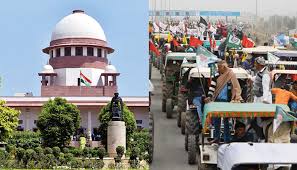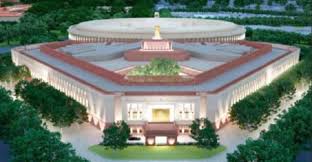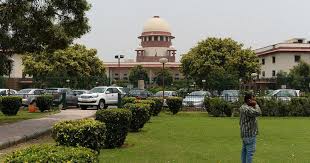Feature
Law minister’s presence in NJAC can influence others: SC

New Delhi: The Supreme Court on Friday held that presence of union law minister in the NJAC would be deprimental as he can influence the decision of other members and it would be “inappropriate” for him to be a part of the decision-making process in appointment of judges.
“The presence of the law minister in the NJAC casts a doubt on the principle of cabinet responsibility,” said Justice Madan B. Lokur, while agreeing with Justice Jagdish Singh Khehar, Justice Kurian Joseph and Justice Adarsh Kumar Goel to strike down the constitution’s 99th amendment and the NJAC Act.
He held the law minister’s presence in the NJAC “totally unnecessary and ill-advised”.
The constitution’s 99th amendment making provision for the National Judicial Appointments Commission (NJAC) were brought to replace the 1993 collegium system for the appointment of judges to the Supreme Court and high courts.
In the judgement, Justice Lokur said it is true that inputs from the executive are important in the process of taking a decision of appointing a person as a high court or Supreme Court judge or not but “providing inputs by the executive is quite different from the process of taking a decision by the executive or the executive being involved in the process of taking a decision”.
“While it must be acknowledged that the law minister is only one of six in the NJAC but being a cabinet minister representing the entire cabinet and the government of India in the NJAC, the law minister is undoubtedly a very important and politically powerful figure whose views can, potentially, have a major impact on the views that other members of the NJAC may hold.”
“Since the law minister is, by virtue of the office held, potentially capable of influencing the decision of a member of the NJAC, it would be inappropriate for the law minister to be a part of the decision taking process. The selection process must not only be fair but must appear to be fair.”
Justice Lokur also said that “independence of the judiciary is vital to democracy” and there ought to be a “separation between the executive and the judiciary” and that such independence of the judiciary begins with the appointment.
“It must be appreciated and acknowledged that methodological independence, namely, the recommendation and appointment of judges to a superior court is an important facet of the independence of the judiciary. If a person of doubtful ability or integrity is appointed as a judge, there is a probability of his/her succumbing to internal or external pressure and delivering a tainted verdict,” he said.
Appointment of people with doubtful integrity, Justice Lokur said, “will strike at the root of the independence of the judiciary and destroy the faith of the common person in fair justice delivery”.
“Therefore, there is a great obligation and responsibility on all constitutional functionaries, including the chief justice of India and the president, to ensure that not only are deserving persons appointed as judges, but that deserving persons are not denied appointment.”
Since justice delivery is undoubtedly the responsibility of the judiciary, therefore, the judiciary (symbolized as it were by the CJI) is obliged to ensure that only the most deserving are considered for appointment as judges, Justice Lokur opined.
He said that there is a need to have a “consequence hearing” for steps to be taken in the future to streamline the process and procedure of appointment of judges to make it “more transparent and in tune with societal needs”.
Entertainment
Meghalaya Reserves Legalized Gambling and Sports Betting for Tourists

The State Scores Extra High on Gaming-Friendly Industry Index
Meghalaya scored 92.85 out of 100 possible points in a Gaming Industry Index and proved to be India’s most gaming-friendly state following its recent profound legislation changes over the field allowing land-based and online gaming, including games of chance, under a licensing regime.
The index by the UK India Business Council (UKIBC) uses a scale of 0 to 100 to measure the level of legalisation on gambling and betting achieved by a state based on the scores over a set of seven different games – lottery, horse racing, betting on sports, poker, rummy, casino and fantasy sports
Starting from February last year, Meghalaya became the third state in India’s northeast to legalise gambling and betting after Sikkim and Nagaland. After consultations with the UKIBC, the state proceeded with the adoption of the Meghalaya Regulation of Gaming Act, 2021 and the nullification of the Meghalaya Prevention of Gambling Act, 1970. Subsequently in December, the Meghalaya Regulation of Gaming Rules, 2021 were notified and came into force.
All for the Tourists
The move to legalise and license various forms of offline and online betting and gambling in Meghalaya is aimed at boosting tourism and creating jobs, and altogether raising taxation revenues for the northeastern state. At the same time, the opportunities to bet and gamble legally will be reserved only for tourists and visitors.
“We came out with a Gaming Act and subsequently framed the Regulation of Gaming Rules, 2021. The government will accordingly issue licenses to operate games of skill and chance, both online and offline,” said James P. K. Sangma, Meghalaya State Law and Taxation Minister speaking in the capital city of Shillong. “But the legalized gambling and gaming will only be for tourists and not residents of Meghalaya,” he continued.
To be allowed to play, tourists and people visiting the state for work or business purposes will have to prove their non-resident status by presenting appropriate documents, in a process similar to a bank KYC (Know Your Customer) procedure.
Meghalaya Reaches Out to a Vast Market
With 140 millions of people in India estimated to bet regularly on sports, and a total of 370 million desi bettors around prominent sporting events, as per data from one of the latest reports by Esse N Videri, Meghalaya is set to reach out and take a piece of a vast market.
Estimates on the financial value of India’s sports betting market, combined across all types of offline channels and online sports and cricket predictions and betting platforms, speak about amounts between $130 and $150 billion (roughly between ₹9.7 and ₹11.5 lakh crore).
Andhra Pradesh, Telangana and Delhi are shown to deliver the highest number of bettors and Meghalaya can count on substantial tourists flow from their betting circles. The sports betting communities of Karnataka, Maharashtra, Uttar Pradesh and Haryana are also not to be underestimated.
Among the sports, cricket is most popular, registering 68 percent of the total bet count analyzed by Esse N Videri. Football takes second position with 11 percent of the bets, followed by betting on FIFA at 7 percent and on eCricket at 5 percent. The last position in the Top 5 of popular sports for betting in India is taken by tennis with 3 percent of the bet count.
Local Citizens will Still have Their Teer Betting
Meghalaya residents will still be permitted to participate in teer betting over arrow-shooting results. Teer is a traditional method of gambling, somewhat similar to a lottery draw, and held under the rules of the Meghalaya Regulation of the Game of Arrow Shooting and the Sale of Teer Tickets Act, 2018.
Teer includes bettors wagering on the number of arrows that reach the target which is placed about 50 meters away from a team of 20 archers positioned in a semicircle.
The archers shoot volleys of arrows at the target for ten minutes, and players place their bets choosing a number between 0 and 99 trying to guess the last two digits of the number of arrows that successfully pierce the target.
If, for example, the number of hits is 256, anyone who has bet on 56 wins an amount eight times bigger than their wager.





















